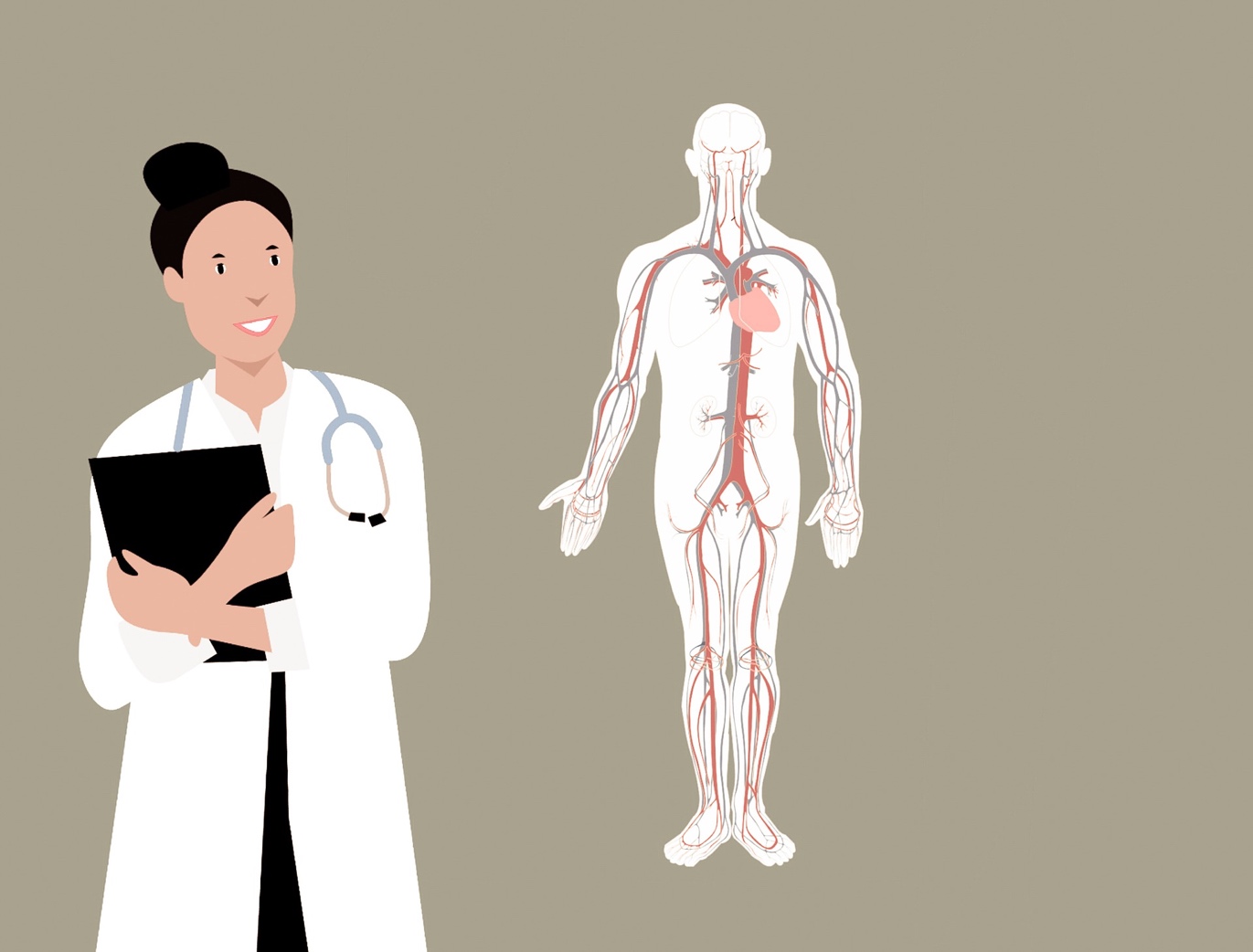If stress is the spark, fatigue is the slow burn that keeps brain fog alive.
Your brain is one of the most energy-hungry organs in your body. It runs on rest just as much as it runs on food. And when you’re exhausted — whether from poor sleep, overwork, or emotional drain — mental clarity is one of the first things to go.
For me, when I haven’t slept well for a few nights in a row, everything feels like walking through molasses. I’ll sit down to write or think, and nothing clicks. It’s not motivation — it’s mental burnout.
According to Dr. Matthew Walker, neuroscientist and author of Why We Sleep, even mild sleep deprivation impairs attention, memory, and emotional regulation. Just one night of poor sleep can lower brain function to the level of someone legally intoxicated. That’s how critical rest is for cognitive sharpness.
Fatigue also creates a vicious cycle: you’re too tired to exercise or prep healthy food, which makes you feel worse — and the brain fog deepens.
What You Can Do:
- Respect your sleep window. Aim for 7–9 hours, and protect the hour before bed like it’s sacred.
- Ditch the screen scroll. Blue light and overstimulation late at night wreck your body’s natural wind-down process.
- Support your rhythm. Magnesium glycinate, a dark room, and a consistent bedtime routine can make a huge difference.
- Rest beyond sleep. Mental fatigue isn’t always solved with naps — sometimes your brain needs stillness, nature, or quiet time alone.
When you’re mentally depleted, you can’t think your way out of the fog — you have to rest your way out.
Blood sugar imbalances
Your brain runs on glucose — but like anything high performance, it needs stable fuel, not spikes and crashes.
When your blood sugar dips too low, your brain interprets it as an emergency. That’s when you feel shaky, irritable, scattered, or just plain blank. If you’ve ever skipped breakfast and found yourself staring into space mid-morning, that’s probably a blood sugar crash — not just a lack of willpower.
I used to think I was just “not a morning person,” but the truth was I was skipping meals, grabbing caffeine, and then wondering why I couldn’t think straight until lunch. When I started eating high-protein breakfasts, my brain completely shifted.
Dr. Mark Hyman, a functional medicine expert, emphasizes that unstable blood sugar is one of the most common — and overlooked — causes of brain fog. When your insulin is constantly spiking and crashing, your energy and focus ride that same rollercoaster.
What You Can Do:
- Start your day with real food. Skip the sugary cereals and aim for protein, fat, and fiber. Eggs, chia pudding, Greek yogurt with nuts — whatever works for you.
- Don’t skip meals. Intermittent fasting might be trendy, but if you’re already foggy and tired, skipping meals can backfire.
- Watch the sugar + caffeine loop. That coffee and pastry combo will spike your energy… then crash it.
- Balance every meal. Think: protein, healthy fat, complex carb, and fiber. It’s not about dieting — it’s about stable fuel.
When your blood sugar is steady, your brain stops panicking — and starts performing.
 Depression and anxiety
Depression and anxiety
Brain fog isn’t always about what you did — sometimes it’s about what you’re feeling. And depression or anxiety can hit your thinking just as hard as stress or fatigue.
When you’re anxious, your brain is stuck in overdrive — scanning for threats, ruminating, overanalyzing. And when you’re depressed, it’s like your mental energy has been drained from the inside out. Both states make it nearly impossible to focus, remember things, or stay motivated.
I’ve had days where my brain wasn’t even tired — just blank. Like it didn’t want to show up. Not because I was lazy, but because everything felt heavy. That’s when I realized this wasn’t just “mental clutter” — it was emotional weight.
According to the American Psychiatric Association, both anxiety and depression interfere with the brain’s executive functioning — the parts responsible for planning, focus, and working memory. Depression even physically reduces activity in the prefrontal cortex and hippocampus, two areas deeply involved in cognition.
What makes this worse? A lot of people don’t realize their brain fog is emotional. They just feel like they’re broken — which adds guilt to the mix and makes the fog even thicker.
What You Can Do:
- Name it. Ask yourself: is this true fatigue, or am I emotionally overwhelmed?
- Support your brain. Omega-3s, B vitamins, and magnesium have been shown to help support mood and brain function.
- Move gently. Even a walk or stretch session can release mood-boosting chemicals that help shift your mental state.
- Don’t go it alone. A good therapist can help untangle what’s mental, emotional, or both — and guide you back toward clarity.
Your mood and your mind aren’t separate. Heal one, and you help the other.
Disruptions in your microbiome
You’ve probably heard that the gut is the “second brain.” But that’s not just some trendy wellness phrase — it’s rooted in neuroscience.
Your gut and brain are in constant conversation through the gut-brain axis. And when that communication line is disrupted — by inflammation, antibiotics, poor diet, or yeast overgrowth (like candida) — your thinking can go foggy fast.
I didn’t connect the dots at first. But looking back, every time my digestion was off — bloating, fatigue, sugar cravings — my brain felt off too. It wasn’t just my stomach acting up, it was my whole system crashing out of sync.
According to a 2022 review in Nature Reviews Gastroenterology & Hepatology, disruptions in gut flora have been linked to changes in mood, cognition, and even conditions like anxiety and depression. When bad bacteria take over, they can release endotoxins that affect your nervous system — almost like being slightly drunk or hungover all the time.
What You Can Do:
- Clean up your diet. Sugar, alcohol, and processed foods feed the wrong microbes and starve the good ones.
- Feed your gut. Prebiotic fiber (like garlic, leeks, and oats) and fermented foods (like sauerkraut or kefir) help balance things out.
- Consider probiotics. Look for broad-spectrum, high-quality strains if you’ve been on antibiotics or had gut issues for a while.
- Support your digestion. Chew slowly, eat mindfully, and avoid chronic snacking — your gut needs rest between meals.
If your brain feels foggy and your gut’s been off, it’s probably not a coincidence. Heal your digestion, and mental clarity often follows.
Brain-inflammation

This one sounds intense — and it is. But it’s also more common than most people realize.
When your body is inflamed, your brain doesn’t get a pass. Inflammation can cross the blood-brain barrier, interfere with neurotransmitters, and quite literally slow down your ability to think, concentrate, or retain information. The result? Brain fog that feels like you’re mentally wading through mud.
I used to think brain inflammation was just a medical buzzword. But once I started paying attention to how certain foods made me feel — like bread or dairy — I realized my brain had been reacting all along. Not with stomach issues, but with sluggish, unfocused thinking.
A 2015 study in Frontiers in Neuroscience linked low-grade brain inflammation to conditions like depression, cognitive decline, and chronic fatigue. And functional medicine practitioners have long pointed out how food sensitivities, poor sleep, and environmental toxins can all contribute.

What You Can Do:
- Identify your triggers. Common inflammatory culprits include gluten, dairy, sugar, seed oils, and processed meats.
- Support your body’s defenses. Eat more anti-inflammatory foods: leafy greens, berries, turmeric, wild-caught fish, and olive oil.
- Focus on lifestyle too. Lack of sleep, chronic stress, and even too much screen time can inflame your system.
- Don’t ignore the signals. Headaches, brain fog, mood swings — they’re often early signs your brain is under pressure.
Clearing brain fog might not always be about doing more. Sometimes, it’s about removing what’s working against your brain in the first place.
Insufficient nutrients
You can’t think clearly on an undernourished brain — and these days, a lot of us are running on low.
Even if you’re eating regularly, you might not be getting the right nutrients. Soil depletion, processed foods, and chronic stress can all drain essential vitamins and minerals your brain depends on to function. B vitamins, magnesium, omega-3s, iron, choline — without enough of them, your mental clarity takes a nosedive.
I didn’t realize how depleted I was until I started taking B12 and magnesium regularly. Within a week or two, it felt like someone flipped the lights back on in my brain. It wasn’t magic — it was biology finally catching up.
Studies have shown that low levels of B12, iron, and folate are associated with poor memory, low energy, and even depressive symptoms. Your neurons literally can’t fire properly without the raw materials they need.
What You Can Do:
- Eat nutrient-dense foods. Eggs, leafy greens, lentils, wild salmon, nuts, and seeds are your brain’s best friends.
- Get tested. If you’re dealing with chronic fog, ask your doctor to check your levels of B12, iron, D3, and magnesium.
- Support with supplements (if needed). Quality matters here — look for methylated B vitamins, magnesium glycinate, and omega-3s from algae or fish oil.
- Don’t overlook absorption. You could be eating well but not digesting properly — gut health and nutrient uptake go hand in hand.
Your brain isn’t just a thinking machine — it’s an organ that needs fuel. Give it the right nutrients, and it often rewards you with clarity.
Hormonal imbalances
When your hormones are out of whack, your brain usually knows before you do.
Estrogen, progesterone, testosterone, cortisol, insulin — they’re not just about reproductive or metabolic health. These hormones affect everything from mood and focus to memory and motivation. And when they’re off balance, one of the first symptoms can be that frustrating, heavy fog in your head.
I’ve gone through phases where I was sleeping, eating well, exercising — but still felt mentally stuck. It wasn’t until I looked into hormone testing that I realized my cortisol was through the roof and my progesterone had tanked. No wonder I couldn’t think straight.
According to the Cleveland Clinic, hormone shifts — especially during perimenopause, postpartum, or thyroid dysfunction — are strongly linked to cognitive symptoms like forgetfulness, lack of focus, and even anxiety. And in men, low testosterone or chronic high cortisol can have a similar effect.
What You Can Do:
- Track your patterns. If your brain fog comes and goes with your cycle or stress levels, it could be hormonal.
- Get tested. A full hormone panel (blood or DUTCH test) can show imbalances in estrogen, cortisol, thyroid hormones, and more.
- Support balance naturally. Seed cycling, adaptogens like ashwagandha, and lifestyle rhythms (consistent sleep, no late-night blue light) can help a lot.
- Work with a practitioner. Hormones are powerful — sometimes you need support to get them back into sync.
Your brain doesn’t work in isolation. It’s part of a beautifully connected system — and hormones are often the hidden levers behind your sharpness (or your fog).
Thyroid and Adrenal Imbalances
If your brain fog feels relentless — like no amount of sleep, coffee, or kale helps — it’s worth looking at your thyroid and adrenals.
Your thyroid controls metabolism, energy, and brain function. When it’s underactive (hypothyroidism), everything slows down — including memory, focus, and mental processing. You might feel like you’re moving through life underwater.
Your adrenals, on the other hand, manage your body’s stress response. But if they’ve been pushed too hard for too long (hello, chronic stress), they can burn out — leaving you with unstable cortisol levels and a foggy, sluggish mind.
I went through a stretch where I honestly thought I had early dementia. My brain felt slow. It turned out my thyroid was underperforming, and my cortisol levels were swinging all over the place. Once I started treating the root, the fog began to lift.
The American Thyroid Association notes that cognitive dysfunction is a well-documented symptom of hypothyroidism — especially in women. And studies on adrenal fatigue (while still debated in traditional medicine) show strong links between dysregulated cortisol and poor mental performance.
What You Can Do:
- Don’t self-diagnose. Fatigue and brain fog are symptoms — testing (TSH, free T3/T4, reverse T3, cortisol) gives you answers.
- Support your body gently. If your adrenals are tanked, overdoing exercise or fasting can make things worse.
- Eat in rhythm. Stable blood sugar and regular meals help both adrenal and thyroid function.
- Be kind to your nervous system. Your brain can’t function well when your stress axis is constantly under siege.
Sometimes brain fog isn’t just about mental overload — it’s your body’s way of saying “something’s off” at a deeper level.
Medication Side Effects
If your brain fog came on suddenly — especially after starting a new medication — that could be your clue.
Many common prescriptions list cognitive symptoms like forgetfulness, confusion, or mental “slowness” as side effects. This includes:
- Antihistamines
- Anti-anxiety medications
- Blood pressure meds
- Sleep aids
- Painkillers
- Even some antibiotics
These drugs don’t just affect your body — they often act on your central nervous system. And for some people, the side effects hit harder than expected.
I once tried a sleep aid after a string of rough nights. I finally slept — but the next day, my brain felt like it had been dipped in glue. I couldn’t focus for hours. That was the last time I used it.
According to the Mayo Clinic, certain medications — especially those with sedative or anticholinergic effects — can interfere with acetylcholine, a neurotransmitter crucial for memory and learning. Older adults are particularly sensitive to this, but it can affect anyone.
What You Can Do:
- Track the timing. Did your fog start after a new prescription? Don’t ignore the correlation.
- Talk to your doctor. There may be alternatives with fewer cognitive side effects.
- Never stop a medication cold turkey. Work with a healthcare provider to adjust safely.
- Support your brain in other ways. If a med is necessary, focus even more on sleep, hydration, nutrition, and blood flow to help offset fog.
Medications can be powerful tools — but they can also come with invisible costs. Always listen to how your brain feels, not just how your body reacts.
Dehydration

Mild dehydration doesn’t just make you thirsty — it can make you slow.
Your brain is around 73% water. That means even a small drop in hydration can affect memory, focus, mood, and coordination. And the kicker? By the time you feel thirsty, you’re already behind.
I used to think brain fog was all about food or stress — until I realized I was drinking maybe one glass of water before 2 p.m. Once I started actually hydrating, my energy and focus noticeably improved. No caffeine needed.
Research published in the Journal of Nutrition found that just 1–2% dehydration can cause measurable cognitive impairment — including reduced concentration and short-term memory. And it doesn’t take extreme conditions. Everyday life (especially with coffee, screen time, or exercise) can sneakily dehydrate you.
What You Can Do:
- Start your day with water. Not coffee — water. Your brain’s been fasting all night.
- Track it. You don’t need to obsess, but aim for at least 2 liters (8+ cups) a day — more if you’re active or sweating.
- Add electrolytes if needed. Especially if you’re exercising or feel depleted, a pinch of sea salt or a clean electrolyte powder can help.
- Watch for hidden dehydration. Fatigue, headaches, dizziness, or even mood swings can be hydration-related.
Sometimes clearing brain fog is as simple as giving your brain what it’s mostly made of.
Sedentary lifestyle
Movement isn’t just good for your body — your brain literally depends on it.
When you sit too much and move too little, blood flow to the brain slows down. That means fewer nutrients, less oxygen, and fewer of the mood-boosting chemicals your brain needs to stay sharp. Over time, this low-activity state can shrink parts of the brain involved in learning and memory.

For me, cardio is like hitting the refresh button on my brain. If I go too long without a ride or run, the fog creeps back in. But after 20 minutes of movement? It’s like my thoughts rearrange themselves into something I can actually work with.
A UCLA study found that sedentary behavior was directly linked to thinning in the brain’s medial temporal lobe — a key area involved in memory. And Harvard researchers have shown that regular aerobic exercise stimulates the growth of new neurons and strengthens connections between brain cells.
What You Can Do:
- Make it daily. You don’t need to train for a marathon — just aim to move your body every day.
- Prioritize aerobic exercise. Brisk walking, cycling, swimming — anything that gets your heart rate up and your blood flowing.
- Stack movement into your day. Dance while cooking, take the stairs, stretch during TV. It all counts.
- Remember: consistency > intensity. You’re not trying to win. You’re trying to clear your mind.
Brain fog often lifts faster with movement than with another supplement or self-help book. Your body was designed to move — and when it does, your brain thanks you.

Brain fog isn’t random — and it’s not something you have to just “push through.”
It’s a signal. A message from your body and brain that something’s off: whether it’s your sleep, stress levels, diet, hormones, gut health, or all of the above.
I’ve dealt with brain fog during high-stress chapters, postpartum, while eating terribly, and even just from skipping cardio for too long. And every time, my body was saying, “Slow down. Pay attention. Something needs to shift.” Once I started listening instead of powering through, the clarity always came back.
The good news? Brain fog is usually reversible. But there’s no single fix — and honestly, there shouldn’t be. The best results come from zooming out and looking at the whole picture: how you sleep, eat, move, think, and feel.
If you’re not sure where to start:
- Pick one area: maybe hydration, sleep, or sugar.
- Track how you feel for a few days.
- Adjust and build momentum over time — this isn’t all-or-nothing.
Your brain is adaptable. It wants to work with you. You don’t need perfect habits — you just need consistent ones that support how you want to feel.
Reminder:
If the fog doesn’t lift after trying these strategies, check in with your doctor. Run labs. Rule out deeper issues. You deserve to feel sharp and capable — not stuck in a cloud.



